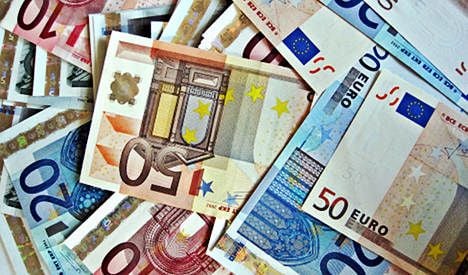In France’s first auction of 2012, the rate on the benchmark 10-year bond rose to 3.29 percent, up from 3.18 percent during the last long-term bond issue on December 1.
Demand for 10-year bonds was also lower, with a bid to cover ratio of 1.64, almost half of the 3.05 it was in the December auction.
The drop in demand came despite the European Central Bank agreeing last month to loan a record 489.2 billion euros at 1.0 percent to 532 banks in a three-year refinancing operation.
Following the last similar operation during the global financial crisis, banks used a considerable portion of the money to buy sovereign bonds, helping keep government borrowing rates low.
“The French bond auction this morning saw decent demand but rising yields showed a deterioration in investor confidence in France’s ability to maintain its top notch credit rating,” said City Index analyst Joshua Raymond.
Ratings agencies have warned that France is exposed to the sovereign debt crisis gripping the eurozone and have threatened to downgrade its hitherto perfect rating.
Thursday’s auction did however reach the treasury’s goal of raising between €7.0 and €8.0 billion.
For the 10-year bonds, maturing on October 25, 2021, the amount raised was €4.02 billion.
For bonds maturing on October 25, 2023, €690 million were raised at an average rate of 3.50 percent.
Longer term, France raised €1.09 billion at an average rate of 3.96 percent on bonds maturing on April 25, 2035.
And on bonds maturing on April 25, 2041, France raised €2.17 billion at an average rate of 3.97 percent, against 3.94 percent during the last similar operation.
France said in late December it will need to raise €178 billion in medium and long-term bonds in 2012, slightly less than last year, as the state will have to meet a budget deficit of €78.7 billion and repay €97.9 billion in debt.
“This auction was on the whole a success,” said Cyril Regnat, an analyst with Natixis.
“Demand remains sustained and on the very long-term the allocated amounts already cover a large part of what was raised in all of 2011,” he said.
The government is struggling to convince financial markets and ratings agencies that it should keep its top credit rating and has imposed two deficit-cutting packages aimed at saving a total of €72 billion since August.
It has said it needs to save €100 billion to balance its budget by 2016 but President Nicolas Sarkozy, facing a tough re-election battle in April, has vowed no new austerity measures.
Analysts said the markets seemed unimpressed by the auction and the euro plunged to a new 16-month dollar low.
“The euro was already under pressure before the results of the French auction came out, having fallen to 16-month lows of $1.2848,” said Spread Co analyst Ian O’Sullivan.
“It stabilised a little before the auction, recovering to $1.2880 but it was shortlived as the market seemed underwhelmed by the auction and just went about selling the euro again until another new 16-month low of 1.2831.”
Investors were also waiting on Thursday for the European Financial Stability Facility, the eurozone bailout fund, to issue its first bonds of the year.
The EFSF has said it will issue €3.0 billion in three-year bonds to help financially struggling Ireland and Portugal.



 Please whitelist us to continue reading.
Please whitelist us to continue reading.